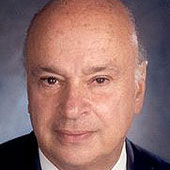Immigration and the Looming U.S. Demographic Crisis
How will economic pressures soon change the U.S. debate over immigration?
April 12, 2007
The implications of the baby boomers’ retirement has been treated exhaustively in the context of the financial pressures it exerts on the U.S. budget due to Social Security and health care deficits.
The other side of that coin, however, is less discussed — but is equally challenging and has a direct impact on immigration policies. After 2010, a huge swath of workers and middle management will begin to disappear from the U.S. workforce. The number of new workers coming onto the job market will fall dramatically below the job creation capacities of U.S. companies.
The great U.S. job machine, which in the last few decades absorbed the unprecedented influx of baby boomers, women and illegal immigrants into the workforce, will face a new phase in its economic evolution. Labor shortages, already a concern at present with unemployment under 5%, will become endemic.
Viewed in this context, the current debates about immigration and outsourcing are most likely well behind the curve. They will soon have to reason with entirely new realities.
The dynamics of this labor shortage will have a profound effect on U.S. production and migration patterns. The U.S. economy will either have to become more capital-intensive, outsource more production — or promote more immigration. The solution will likely entail a combination of the three.
The United States historically has always depended on influxes of immigrant labor to meet continually expanding job needs. According to U.S. Census data, the United States accommodated its largest influx of immigration during the 1980s, more than any earlier period and equivalent in percentage to the great wave that sought refuge in the United States in the early 1900s.
The rationale to outsource production is also changing. Soon, the need to outsource will not be a matter of cost savings — but simply a response to the fact that there are not enough workers in the United States to fill the jobs required to meet domestic consumer market demands.
It is clear that the impending labor shortage and resulting tight labor markets will make decisive action necessary because of both the suddenness with which it will occur and its global reach.
The implications of these changes will reverberate throughout the Western Hemisphere and beyond. The countries of Latin America and the Caribbean will be deeply affected by the policy choices of the United States as the attraction of employment drives increasing numbers of immigrants to the United States.
Some of the most motivated workers will begin to migrate, with the concomitant effects of the "brain drain." In the United States, the need for labor will force reconsideration of immigration policy.
Already the largest U.S. minority population, the Hispanic influence will profoundly alter the dynamics of relations between the United States, and the other countries of the Americas — not to speak of the confines of U.S. politics. Until prosperity spreads more evenly throughout the region, such migration will continue to be a challenge.
The impact of these changes is just over the horizon. The deficit of new workers in relation to job creation in the U.S. economy will begin to accelerate after 2010. Given the proclivity to postpone problems until they reach a crisis stage, the nature of our debates over immigration are not likely to change very much before then.
However, after 2010 the need for increased revenues to cover Social Security and Medicare deficits will leave the U.S. economy keen on finding more workers and more taxpayers. The tendency of labor shortages to trigger wage pressures — traditionally an important cause of inflation — will place countervailing pressures on the economy.
The interests of all Americans would clearly be best served if we were able to anticipate these considerations in our policy making today. Unless the U.S. immigration debate is conducted in the context of the impending changes in the nation's demographic profile, the policies adopted may fail to ensure a labor force that meets the growing demands of industry.
Whether we Americans are capable of anticipating the coming demographic crisis before it happens is an open question. If we do not, we will hear the candidates in the election of 2012 approaching the issue with a very different sense of urgency.
Read previous
Toward a Nuclear-Free World
April 11, 2007
